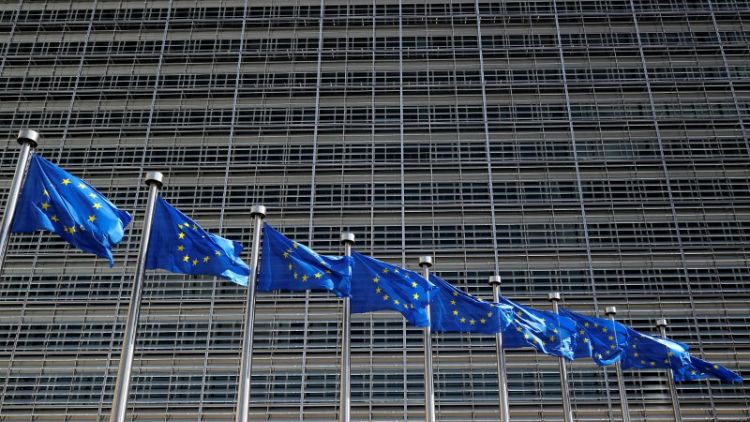By Francesco Guarascio
BRUSSELS (Reuters) - European Union regulators have drawn up a preliminary plan for a possible tightening of rules against money laundering after a series of high-level cases at the bloc's banks, but do not envisage quick measures.
The plan, prepared by a group of experts set up by the European Commission, acknowledges that "there may be gaps in the EU's supervisory framework" to counter money laundering, but pushes back any meaningful action to late next year or beyond.
The confidential document, dated Aug. 31, was prepared after suspected cases of money laundering at banks in Malta, Latvia, Estonia and Denmark and just before Dutch giant ING agreed to pay this week a fine for failing to prevent money laundering.
Currently, EU states are free to apply common rules against money laundering in different manners, a situation that has led to poor supervision in some cases.
"The report is proof that money laundering supervision does not work in the banking union," Sven Giegold, a member of the European Parliament who sits on the economic affairs committee and on the special committee on financial crimes, said.
"The Commission has no excuse any more to kick the dirty can along the road. It must swiftly propose legislative changes," said Giegold. He was not involved in drafting the plan.
However, the urgency to address the situation signalled by EU regulators in several statements in past months appears not to translate into fast action.
Despite earlier pledges of new measures by the end of the year, the preliminary plan foresees that most actions could be undertaken by mid-2019 or the end of 2019.
Proposed measures include new guidelines on how to address money laundering at banks and more cooperation among the several EU and national agencies that are responsible for countering financial crime and supervising banks.
The plan recommends that more powers should be given to the European Banking Authority, the EU body that regulates the sector - although the report acknowledges that the agency lacks staff to carry out this additional task and is in the process of moving its headquarters from London to Paris after Britain's vote to leave the EU.
No date is set for more ambitious measures, such as the establishment of a single EU supervisor against money-laundering, which would allow a centralised supervision similar to that exercised by the European Central Bank over euro zone banks' financial stability.
"The Commission may examine" this option by June 2019, the report says. European Parliament elections and the subsequent appointment of a new Commission are scheduled for May.
The report also does not indicate a date for the possible introduction of clearer and standardised legislation across the 28 EU countries to tackle financial crime.
(Reporting by Francesco Guarascio; Editing by Alison Williams)



